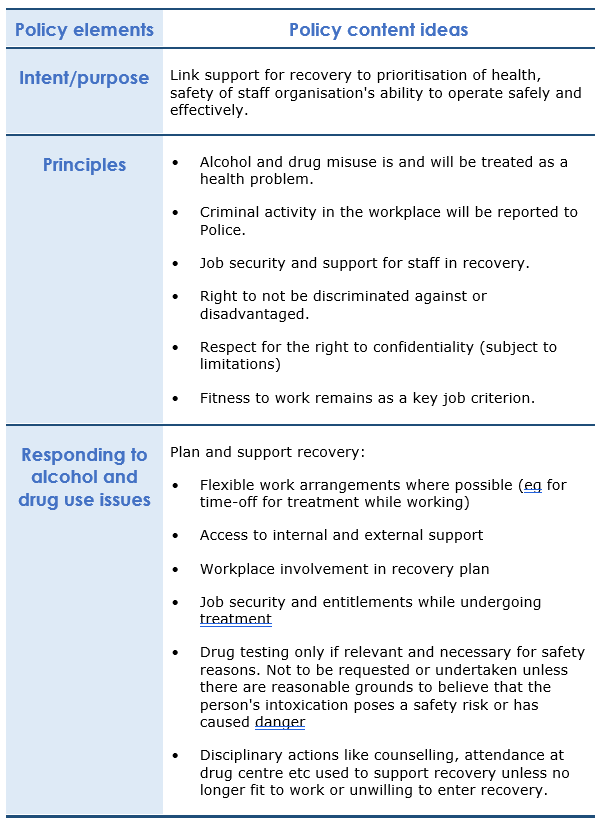Policies and procedures for A&D recovery in the workplace
We need a recovery approach to alcohol and drug use as a society.
It’s been advocated in the criminal justice system so a health rather than a criminal approach would apply for drug and alcohol-related offending. (See, for example, He Waka Roimata pp 65-67; Rights, respect & recovery: alcohol & drug treatment strategy)
More recently, its been recommended by the Waitangi Tribunal as the preferred response to substance abuse and addiction issues of parents of tamariki involved in the statutory care system (see Tribunal Report: He Pāharakeke, he Rito Whakakīkinga Whāruarua).
Making a difference with HR policies and procedures
We can all get behind this move to a recovery approach with our HR policies and procedures.
Too often, HR policies on alcohol and drugs in the workplace are narrowly framed around alcohol and drug testing and the consequences. They are usually punitive.
In the social and health services, we expect better of our client services. Alongside prohibiting drugs and alcohol we would also focus on recovery and support. So why not a similar approach in policies and procedures for staff?
Alcohol and drug testing may be important for safety- sensitive work. But there’s got to be more to it.
Our staffing policies need to be more balanced. They should outline if alcohol is allowed/not allowed in the workplace and the consequences of being intoxicated while at work alongside policy and procedure aimed at:
- preventing and educating staff about alcohol and drug use in the workplace
- supporting staff to speak up early if they have concerns about their drinking or drug use, and
- supporting staff with recovery.
Below, we give some ideas to help get you started with new or revised policy and procedure content on alcohol and drug use in the workplace.
Contact us if you want help with this or other policies and procedures. We provide balanced and humane policies.
For social and health services, our most popular service is the online policy and procedure service. It includes regular reviews and updates of policies. It means you don’t miss opportunities to support new or different approaches to hard issues like alcohol and drugs through your workplace policies and procedures.

